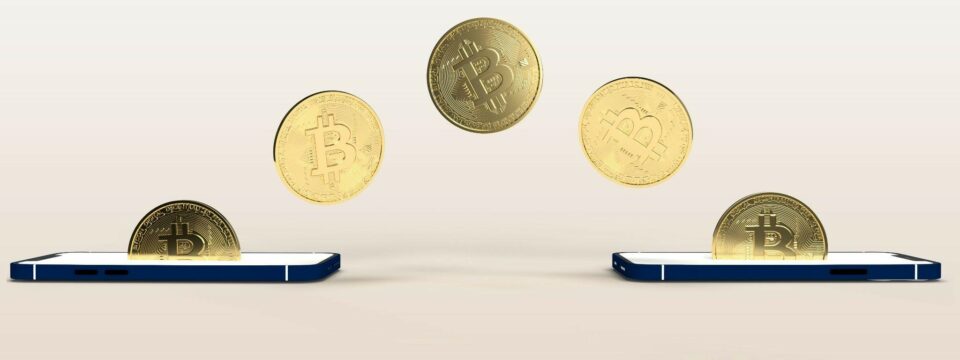In the digital age, where data reigns supreme and technology continuously evolves, blockchain stands out as a revolutionary force shaping the future. Originally conceptualized as the underlying technology behind Bitcoin, blockchain has since transcended its cryptocurrency origins to emerge as a transformative tool with vast implications across numerous industries. From finance and healthcare to supply chain management and beyond, blockchain technology is poised to revolutionize the way we transact, interact, and trust in tomorrow’s world.
Understanding Blockchain Technology
At its core, blockchain is a decentralized, distributed ledger technology that enables secure and transparent transactions across a network of computers. Each transaction is recorded as a block and linked together in a chronological chain, forming a tamper-proof record of data. The decentralized nature of blockchain means that no single entity has control over the entire network, ensuring trust and transparency without the need for intermediaries.
The Foundation of Trust
At its core, blockchain is a decentralized, immutable ledger that records transactions across a network of computers. Each block contains a cryptographic hash of the previous block, creating a chain of blocks – hence the name blockchain. This structure ensures transparency, security, and immutability, as altering any single block would require the alteration of every subsequent block in the chain, a task practically impossible to accomplish.
Disrupting Industries
Blockchain’s potential to disrupt industries is profound. In finance, it has the power to streamline processes, reduce costs, and enhance security. Smart contracts, self-executing contracts with the terms of the agreement directly written into code, automate transactions and eliminate the need for intermediaries, saving time and minimizing the risk of fraud.
In healthcare, blockchain can revolutionize data management by providing a secure, interoperable platform for storing and sharing sensitive medical information. Patients gain greater control over their health records, while healthcare providers benefit from improved accuracy, accessibility, and efficiency in patient care.
Supply Chain Transparency
Supply chain management is another area ripe for blockchain innovation. By tracing the journey of products from manufacturer to consumer, blockchain ensures transparency and accountability at every stage. This not only helps in preventing counterfeit goods and ensuring product authenticity but also enables swift and efficient recalls when necessary, thereby enhancing consumer safety and trust.
Empowering the Unbanked
One of the most promising aspects of blockchain technology is its potential to empower the unbanked and underbanked populations around the world. By providing access to financial services through blockchain-based platforms, individuals who have been excluded from traditional banking systems can now participate in the global economy, send and receive payments, and access credit and insurance services. This is made possible through.
- Crypto Wallet Accessibility: Blockchain technology allows individuals to create and manage crypto wallets easily, enabling them to store, send, and receive digital assets securely.
- Financial Inclusion: Crypto wallets provide a gateway to financial inclusion for the unbanked, allowing them to access a wide range of financial services without the need for a traditional bank account.
- Borderless Transactions: With crypto wallets, individuals can conduct borderless transactions, overcoming geographical barriers and reducing the cost and time associated with cross-border payments.
- Decentralized Finance (DeFi): DeFi platforms built on blockchain technology offer a range of financial services, including lending, borrowing, and trading, accessible to anyone with a crypto wallet and an internet connection.
Challenges and Opportunities
Despite its vast potential, blockchain technology is not without its challenges. Scalability, interoperability, and regulatory concerns are among the key issues that must be addressed for widespread adoption to occur. Additionally, the energy-intensive process of blockchain validation, known as mining, raises environmental concerns that must be mitigated through the development of more sustainable solutions.
However, with every challenge comes an opportunity for innovation. Scalability solutions such as sharding and layer-two protocols are being explored to improve blockchain’s throughput and efficiency. Interoperability protocols aim to facilitate seamless communication between different blockchain networks, fostering a more interconnected ecosystem. Moreover, ongoing dialogue with regulators and policymakers is essential to establish clear guidelines that promote innovation while ensuring consumer protection and security.
Revolutionizing Finance and Banking
One of the most significant impacts of blockchain technology is its potential to disrupt the finance and banking sector. Traditional financial systems are often plagued by inefficiencies, high costs, and a lack of transparency. Blockchain offers solutions to these challenges by providing faster, cheaper, and more secure methods for conducting transactions, managing assets, and verifying identities. Smart contracts, powered by blockchain technology, automate and enforce the terms of agreements, reducing the need for intermediaries and streamlining processes.
Looking Ahead
As we stand on the cusp of a blockchain revolution, the possibilities for transformation are endless. From enhancing trust and transparency in our digital interactions to democratizing access to financial services and beyond, blockchain technology holds the promise of a more equitable, efficient, and secure future.
However, realizing this vision will require collaboration, innovation, and a commitment to overcoming the challenges that lie ahead. By harnessing the power of blockchain technology, we can pave the way for a tomorrow where trust is inherent, opportunities are abundant, and possibilities are limitless.


